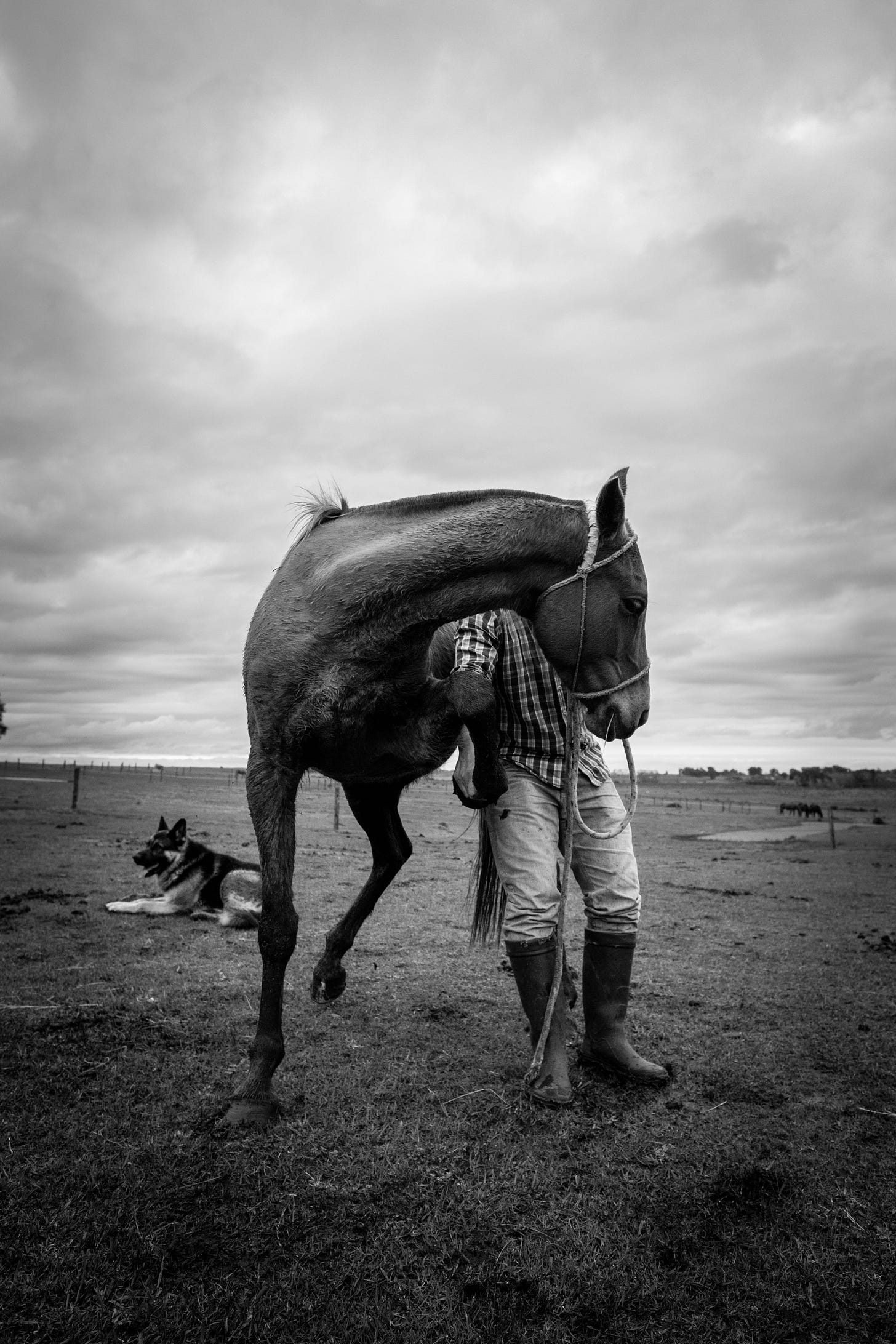"Perhaps"
A Stoic Approach to Navigating Uncertainty
If you're anything like me, you've found yourself obsessively tracking the daily developments, both geopolitical and economic, that seem to portend challenging days ahead. It's an easy trap to fall into, and it can paralyze even the most seasoned decision-makers.
As of writing this, the world is holding its breath to see if a response to Iran's unprecedented direct attack on Israel spirals out of control into a larger conflict, whether a former President of the United States will be found guilty of criminal charges and whether we'll see yet another Speaker of the House ousted.
The world is also watching to see whether Russia breaks through Ukrainian lines, whether the Bank of Japan will be forced to intervene to save the Yen, and whether gold will continue its incredible bull run. These are just a few of the things happening today and it's by no means a comprehensive list.
We are a people that crave certainty and clear, binary decisions. Unfortunately, our desires rarely align with reality. There are so many forces at play, and it's almost impossible to know what is true and which sources we should trust for information. In times like this, I like to revisit the Taoist parable of the farmer and the horse.
Once upon a time, there was an old farmer who had worked his crops for many years. One day, his horse ran away. Upon hearing the news, his neighbors came to visit. "Such bad luck," they said sympathetically.
"Perhaps," the farmer replied.
The next morning the horse returned, bringing with it three other wild horses. "How wonderful," the neighbors exclaimed.
"Perhaps," replied the old man.
The following day, his son tried to ride one of the untamed horses, was thrown, and broke his leg. The neighbors again came to offer their sympathy for what they called his "misfortune."
"Perhaps," answered the farmer.
The day after, military officials came to the village to draft young men into the army. Seeing that the son's leg was broken, they passed him by. The neighbors congratulated the farmer on how well things had turned out.
"Perhaps," said the farmer.

This story serves as a powerful reminder of the wisdom that comes with maintaining a steady hand, a skeptical mind, and a stoic mentality in the face of life's uncertainties. In today's rapidly changing world, it is all too easy to get caught up in the drama and chaos of current events, allowing our emotions and knee-jerk reactions to dictate our choices.
However, strong leadership requires a different approach.
When faced with uncertainty, leaders must cultivate the ability to maintain perspective and project a steady persona, even as they prepare for what might be. This does not mean hiding one's head in the sand or ignoring potential threats; rather, it means approaching challenges with a clear-eyed view and a willingness to adapt as circumstances change.
The power of perspective cannot be overstated. By taking a step back and assessing situations objectively, leaders can avoid getting caught up in the heat of the moment and make decisions based on reason rather than emotion. This requires a degree of self-awareness and discipline, as well as a willingness to seek out diverse viewpoints and consider multiple scenarios.
At the same time, leaders must also be prepared to act decisively when necessary. This means having contingency plans in place, building resilient systems and teams, and being ready to pivot as needed. It also means cultivating a sense of inner strength and resilience, so that one can weather the inevitable setbacks and challenges that come with leadership.
Ultimately, the key to navigating uncertainty is to greet what the world throws at you with stoic coolness. This does not mean being unfeeling or disengaged, but rather maintaining a sense of perspective and equilibrium in the face of adversity. It means being able to separate what is within one's control from what is not, and focusing one's energy on those things that can be influenced or changed.
Remember, true wisdom lies in cultivating a sense of detachment and perspective, rather than succumbing to emotional reactivity. As leaders, we must resist the urge to be swayed by every passing event or piece of news, and instead approach challenges with a clear-eyed view of history and a deep understanding of the broader context in which we operate.
This requires a willingness to step back from the fray, to seek out diverse perspectives, and to make decisions based on reason and evidence rather than fear or impulse. By embodying these qualities, we can navigate the uncertainties of our world with greater clarity and effectiveness, preparing ourselves and our organizations for whatever may come.
In the end, it is not the absence of uncertainty that defines us, but rather how we choose to meet it – with a sense of perspective, a knowledge of history, and a steadfast commitment to acting with wisdom and integrity in the face of whatever challenges may arise.


